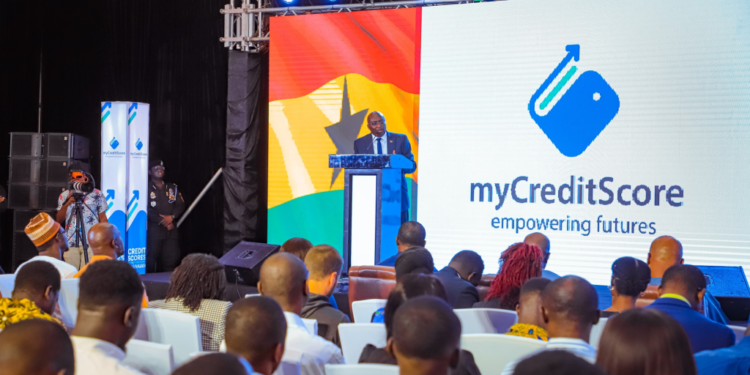How Ghana’s “Digitalisation Narrative” Enabled Crony Enrichment
Some smart entrepreneurs in Ghana saw the signs early and positioned well to ride the wave. They have been rewarded with tens of millions of dollars of public money
- Advertisement -
- Readers of this blog should by now know my position on how a glorious narrative around “digitalisation”in Ghana became a massive cover for what I call, “State Enchantment“.
- Some smart entrepreneurs in Ghana saw the signs early and positioned well to ride the wave. They have been rewarded with tens of millions of dollars of public money.
- Because these projects were seen as mere election-winning gimmicks, few bothered to “follow the money”.
- In any event, every single one of the projects in the great digital swindle was justified with a solid rationale. On paper. Their need in the nation were elaborately established. Implementation was often rushed on the basis of urgency. Financial terms were presented as great for Ghana.
- The political might of the Vice President (Veep) was deployed to clear all the usual checks and balances within the state bureaucracy.
- A specific group of companies with the right connections in the Veep’s office dominated these deals.
- In several instances, the World Bank became the source of cash, often with its usual strict controls circumvented by Ghana’s marshy political economy.
- Some of these projects now constitute a clear and present danger to Ghana’s fiscal stabilityand must be reformed to save money for a very broke Republic.
- Doing so, however, requires a sound understanding of how the these risks built up and how in its commercial dealings with these darling companies, Ghana somehow ended up the sucker in almost every scenario.
- I have detailed many of these schemes in longform essays on this blog so readers are encouraged to explore.
- Today, our investigations team wrapped up an initial assessment for our study into the World Bank’s funding of the digitalisation of the Office of Registrar of Companies (ORC), formerly known as the Registrar General’s Department. This work forms part of our wide-ranging investigation into the World Bank’s Ghana portfolio. It was exhilarating seeing some of the same patterns we have identified in other World Bank financing contexts surface with such precision.
- A functional system built by Crimson Logic (having been conceptualised by GCNet) and paid for by the World Bank that simply needs upgrading and transitioning to an internal IT team has been “strategically declared redundant” on the grounds that a maintenance contract with Crimson Logic has expired. Just because a group of companies favoured by the sitting Vice President’s office has been identified to take over.
- Advertisement -

- Advertisement -
- Advertisement -
- Yet, there is an unevaluated 7.5 million GHS tender for maintenance of the Crimson Logic software with a deadline of 11th December 2024.
- The companies lined up for the new gig are in the same clique that is also behind the strange “ride-sharing” platforms, and “artificial intelligence” projects at the state-owned electricity utility, ECG, we have mentioned previously. Readers would have observed that all these projects have been launched to great fanfare by the Veep.
- The aforementioned “darling companies” have been primed to create a greenfield multimillion-dollar system to supplant the e-Registrar platform, which, as explained earlier, has been systematically neglected and allowed to deprecate faster than necessary. The exact same thing that happened to the World Bank – funded e-gates project in Ghana.
- Despite all the World Bank money spent, one still struggles to use the ORC’s e-services.E-filings and public searches remain erratic. Clearly, rather than see one contract through to a successful conclusion, the tendency is to clear the path for politically favoured IT contractors.
- E-portal services like business name search and registration that are a breeze in many African countries remain a massive hurdle for businesses in Ghana due to frequent downtimes. Nowadays, even e-portal account creation doesn’t work.
- Yet, corporate registry digitalisation has long been presented as criticalto the country’s ability to move upthe “ease of doing business” rankings published by the likes of the World Bank.
- Margins, the chief darling company in the Veep’s digitalisation bonanza, comes into the corporate e-registry picture from a different angle, through its ICPS subsidiary. It is responsible for ensuring that searches for company records work seamlessly by converting all paper records into electronic format.
- Our team noticed, upon testing, that the public search function has been broken for a while now. We decided to probe. We confirmed with internal sources that the backend system, accessible only to ORC personnel, also doesn’t function when searching for historical corporate records. The scope of the Margins contract was to ensure electronic formatting of corporate registration and filing records dating back to the 1st Republic.
- Despite significant World Bank funding for this project, the ORC still can’t deliver historical searches due to rather odd claims about equipment failures due to power surges, etc.
- In short, we have yet another World Bank e-Transform project for which Ghana has borrowed substantial amounts of money with the goal of improving the business climate through world-class corporate registry services failing to deliver because the political economy and governance climate do not favour strong project accountability. As we keep saying, something needs to give.
Source: norvanreports.com
- Advertisement -


